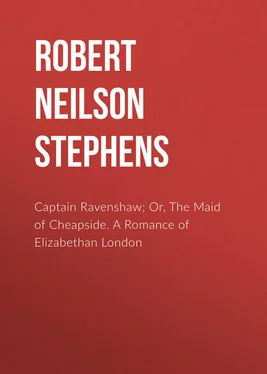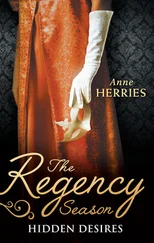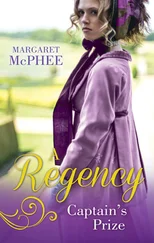Robert Stephens - Captain Ravenshaw; Or, The Maid of Cheapside. A Romance of Elizabethan London
Здесь есть возможность читать онлайн «Robert Stephens - Captain Ravenshaw; Or, The Maid of Cheapside. A Romance of Elizabethan London» — ознакомительный отрывок электронной книги совершенно бесплатно, а после прочтения отрывка купить полную версию. В некоторых случаях можно слушать аудио, скачать через торрент в формате fb2 и присутствует краткое содержание. Жанр: foreign_antique, foreign_prose, Альтернативная история, на английском языке. Описание произведения, (предисловие) а так же отзывы посетителей доступны на портале библиотеки ЛибКат.
- Название:Captain Ravenshaw; Or, The Maid of Cheapside. A Romance of Elizabethan London
- Автор:
- Жанр:
- Год:неизвестен
- ISBN:нет данных
- Рейтинг книги:5 / 5. Голосов: 1
-
Избранное:Добавить в избранное
- Отзывы:
-
Ваша оценка:
- 100
- 1
- 2
- 3
- 4
- 5
Captain Ravenshaw; Or, The Maid of Cheapside. A Romance of Elizabethan London: краткое содержание, описание и аннотация
Предлагаем к чтению аннотацию, описание, краткое содержание или предисловие (зависит от того, что написал сам автор книги «Captain Ravenshaw; Or, The Maid of Cheapside. A Romance of Elizabethan London»). Если вы не нашли необходимую информацию о книге — напишите в комментариях, мы постараемся отыскать её.
Captain Ravenshaw; Or, The Maid of Cheapside. A Romance of Elizabethan London — читать онлайн ознакомительный отрывок
Ниже представлен текст книги, разбитый по страницам. Система сохранения места последней прочитанной страницы, позволяет с удобством читать онлайн бесплатно книгу «Captain Ravenshaw; Or, The Maid of Cheapside. A Romance of Elizabethan London», без необходимости каждый раз заново искать на чём Вы остановились. Поставьте закладку, и сможете в любой момент перейти на страницу, на которой закончили чтение.
Интервал:
Закладка:
London, June 1, 1901.
CHAPTER I.
MEN OF DESPERATE FORTUNES
"Though my hard fate has thrust me out to servitude,
I tumbled into th' world a gentleman."
It was long past curfew, yet Captain Ravenshaw still tarried in the front room of the Windmill tavern, in the Old Jewry. With him were some young gentlemen, at whose cost he had been drinking throughout the afternoon. For their bounty, he had paid with the satirical conversation for which he was famed, as well as with richly embellished anecdotes of his campaigns. Late in the evening, the company had been joined by a young gallant who had previously sent them, from another chamber, a quantity of Rhenish wine. This newcomer now ordered supper for the party, a proceeding at which the captain dissembled his long-deferred pleasure – for he had not eaten since the day before. Moreover, besides the prospect of supper, there was this to hold him at the tavern: he knew not where he should look for a bed, or shelter, upon leaving it. The uncertainty was a grave consideration upon so black and windy a night.
Master Vallance, the gentleman who had ordered supper, had listened to the last of Ravenshaw's brag with a rather scornful silence. But the other young men had been appreciative; it was their pose, or affectation, to be as wicked as any man might; hence they looked up to this celebrated bully as to a person from whom there was much to be learned, and in whom there was much to be imitated.
The group had been sitting before the wide fireplace. But as soon as the roast fowls were brought in, there was a movement to the long table in the middle of the room. The captain was gifted with active, striding legs and long, slashing arms. So he was first to be seated, and, as he leaned forward upon his elbows, he seemed to cover more than his share of the table. He had a broad, solid forehead, an assertive nose, a narrow but forward chin, gray eyes accustomed to flash with a devil-may-care defiance, a firm mouth inured to a curve of sardonic derision. His rebellious hair, down-turning moustaches, and pointed beard were of a dark brown hue. He was a man of good height; below the sword-belt, he was lank to the ground; above, he broadened out well for chest and shoulders. His voice was quick, vigorous, and not unpleasantly metallic. He was under thirty, but rough experience had hardened his visage to an older look. His jerkin, shirt, hose, shoes, and ruff also betokened much and severe usage.
Master Vallance, in spotless velvet doublet and breeches, and perfectly clean silk stockings, looked at him with contemptuous dislike.
"Take heed you scorch not the capon with your nose, roaring Ravenshaw," said the youth, quietly.
It was not Ravenshaw's habit to resent allusions to his character as a "roaring boy;" indeed he encouraged the popular idea which saddled him with that title, at that time applied to bullies of the taverns. But some circumstance of the moment, perhaps something in the young coxcomb's air of aristocratic ridicule, guided the epithet to a sensitive spot.
" Captain Ravenshaw, by your leave," he said, instantly, in a loud tone, with an ironical show of a petitioner's deference.
"Forsooth, yes; a captain of the suburbs," replied the young gentleman, with a more pronounced sneer.
Now at this time – toward the end of the reign of Queen Elizabeth – and for a long time after, certain of the suburbs of London were inhabited numerously by people of ill repute. There were, especially, women whom the law sometimes took in hand and sent to the Bridewell to break chalk, or treated to a public ride in a cart, as targets for rotten vegetables, addled eggs, and such projectiles. Many an unemployed soldier, or bully who called himself soldier, would bestow, or impose, his protection upon some one of these frail creatures in the time of her prosperity, exacting from her the means of livelihood. Hence did Ravenshaw see in the title of "captain of the suburbs" an insult little less than lay in that of "Apple-John," or "Apple-squire," itself.
When a gentleman calls another by the name of a bad thing, it is not necessarily implied that he thinks the other is that thing; but it is certain that he means to be defiantly offensive. Therefore, in this case, the captain's part was not to deny, but to resent. Not only must he keep up his reputation with the other gentlemen as a man not to be affronted, but he really was in a towering rage at being bearded with easy temerity by such a youngling.
"What!" quoth he. "Thou sprig! Thy wits are strayed away, methinks. Or has thy nurse been teaching thee to use a pert tongue?"
"Nay, save your own tongue for the tasting of yon capon. I speak only truth. Your reputation is well known."
"Why, thou saucy boy, I may not spit butterflies on my sword, nor provoke striplings by giving them the lie; else – "
The captain finished with a shrug of vexation.
"Look ye, gentlemen, he lays it to my youth," continued the persecutor, "but there's yet a horse of another colour. This captain is free enough with his bluster and his sword; he has drawn quarts of blood for a single word that misliked him, upon occasion; but he will bear a thousand scurvy affronts from any man for the sake of a supper. You shall see – "
"Supper!" echoed the captain, springing up. "Do you cast your filthy supper in my teeth? Nay, then, I'll cast it in thine own."
With this, thoroughly enraged, Captain Ravenshaw seized the particular capon to which the gallant had alluded, and flung it across the table into the gallant's face. It struck with a thud, and, rebounding, left the young man a countenance both startled and greasy. Not content, the offended captain thereupon reached forth to the fowl which had been served as companion to the capon, and this he hurled in the same direction. But he aimed a little too high, moreover the fop ducked his head, and so the juicy missile sped across the room, to lodge plump against the stomach of a person who had just then come into view in the open doorway.
This person showed lean in body and shabby in raiment. He made a swift, instinctive grasp at the thing with which he had come so unexpectedly in contact, and happened to catch it before it could fall to the floor. He held it up with both hands to his gaze a moment, and then, having ascertained beyond doubt its nature, he suddenly turned and vanished with it. Let us follow him, leaving behind us the scene in the tavern room, which scene, upon the landlady's rushing in to preserve order for the good name of the house, was very soon after restored to a condition of peace by the wrathful departure of Ravenshaw from the company of an offender too young for him to chastise with the sword.
Читать дальшеИнтервал:
Закладка:
Похожие книги на «Captain Ravenshaw; Or, The Maid of Cheapside. A Romance of Elizabethan London»
Представляем Вашему вниманию похожие книги на «Captain Ravenshaw; Or, The Maid of Cheapside. A Romance of Elizabethan London» списком для выбора. Мы отобрали схожую по названию и смыслу литературу в надежде предоставить читателям больше вариантов отыскать новые, интересные, ещё непрочитанные произведения.
Обсуждение, отзывы о книге «Captain Ravenshaw; Or, The Maid of Cheapside. A Romance of Elizabethan London» и просто собственные мнения читателей. Оставьте ваши комментарии, напишите, что Вы думаете о произведении, его смысле или главных героях. Укажите что конкретно понравилось, а что нет, и почему Вы так считаете.












